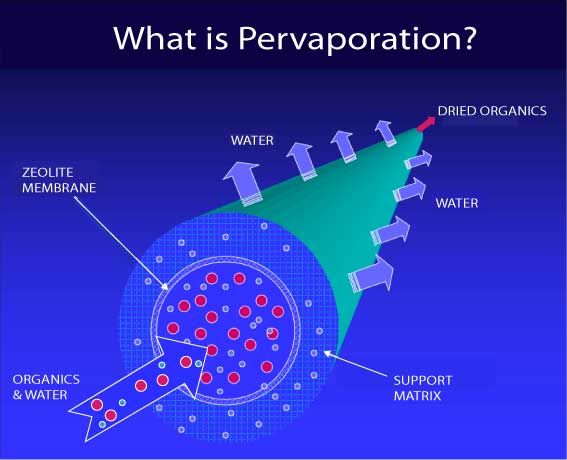Can Pervaporation Filter Seawater in Minutes?
Published on by Dan Grech, Director at Global OTEC Resources in Technology
Researchers at Alexandria University in Egypt have found a cost-effective desalination technology which can filter salt water in minutes without using electricity.

Source: Zeolite Solution
The technology is based on membranes containing cellulose acetate powder, produced in Egypt. The powder, in combination with other components, binds the salt particles as they pass through the membrane.
“The membrane we fabricated can easily be made in any laboratory using cheap ingredients, which makes it an excellent option for developing countries,” says Ahmed El-Shafei, an associate professor of agricultural and biosystems engineering at Alexandria University.
The technology uses pervaporation, a technique by which the water is first filtered through the membrane to remove larger particles and then heated until it vaporises. The vapour is then condensed to get rid of small impurities, and clean water is collected.
This method can be used to desalinate water which contains different types of contamination, such as salt, sewage and dirt. This kind of water is difficult to clean quickly using existing procedures.
The membrane technology in combination with vaporisation can be applied in remote settings, as it requires only the membranes for the filtering process, and fire to vaporise the filtered water.
“Using pervaporation eliminates the need for electricity that is used in classic desalination processes, thus cutting costs significantly,” says El-Shafei.
“The technology has been around since the mid-90s, but what is new is making the membrane locally, using materials abundant in Egypt and developing countries,” says Helmy El-Zanfaly, a professor of water contamination at Egypt’s National Research Center.
He adds that existing pervaporation membranes are fabricated using complicated procedures, making them unsuitable for cheap production.
“The technology implemented in the study is much better than reverse osmosis, the technology currently used in Egypt and most countries in the Middle East and North Africa,” says El-Zanfaly.
Source: Future Desalination
Media
Taxonomy
- Purification
- Technology
- Filtration
- Desalination
- Filtration
- Sea Water Desalinisation
- Sustainable Desalination
- Water Purification
- Desalination
4 Comments
-
Where can I find pervaporation commercial solutions?
-
Can the membrane be made locally in Kenya?
-
Surely all you need is a solar "alembic", with a blackened non reflecting surface on one side - where the suns focused rays are used to boil water, & a long, shaded, spout to condense the steam?
-
Details of patented zero carbon, inexpensive, no chemicals, no filters, low maintenance and no hypersalinity desalination mechanism from rosjonesenvedu@hotmail.com